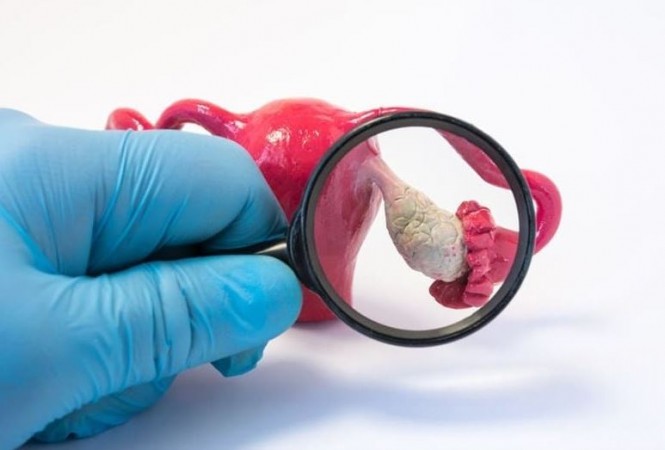
In recent times, many women in India are facing health-related challenges primarily due to unhealthy diets and lifestyles. Among these challenges, Polycystic Ovary Syndrome (PCOS) is the most prevalent. PCOS is a chronic endocrine disorder that has become increasingly common among women in India, affecting approximately 25% of females. It is characterized by a range of symptoms, including weight gain, acne, hair loss, and difficulties with conception. Unhealthy diets and lifestyles are often the underlying causes of PCOS. To address this issue and provide relief, many women turn to medications. However, there are effective ways to manage PCOS without relying solely on medications. This article explores various tips and lifestyle changes that can help women overcome PCOS and related problems.
Understanding PCOS:
Polycystic Ovary Syndrome (PCOS) is a complex endocrine disorder characterized by hormonal imbalances in women. It often leads to irregular menstruation, ovarian cysts, and an overproduction of male hormones, particularly testosterone. This hormonal imbalance can result in a range of physical and emotional symptoms, such as weight gain, acne, hirsutism (excess hair growth), and fertility issues. The exact cause of PCOS is not fully understood, but it is widely believed to be influenced by unhealthy lifestyles, including poor diet and lack of exercise.
Managing PCOS Without Medication:
Dietary Modifications:
PCOS management begins with dietary changes. Avoiding processed foods, excessive carbohydrates, and unhealthy fats is crucial. Instead, focus on incorporating whole grains like oats, quinoa, brown rice, and ancient grains like millet, sorghum, and buckwheat into your diet. These complex carbohydrates have a lower glycemic index and can help stabilize blood sugar levels.
Additionally, include sources of healthy fats like walnuts, almonds, and flaxseeds in your diet. Omega-3 fatty acids found in these foods can help reduce testosterone levels, which are often elevated in women with PCOS.
Increase your intake of fruits, green leafy vegetables, and cruciferous vegetables like broccoli, cauliflower, Brussels sprouts, and sprouts. These foods are rich in antioxidants, vitamins, and minerals that support overall health and hormone balance.
Opt for cooking oils like olive oil, nuts, avocado, and rice bran oil, which contain healthy fats that can help manage PCOS.
Regular Physical Activity:
Engaging in daily physical activity is crucial for managing PCOS. Regular exercise helps improve blood circulation, regulate insulin levels, and aid in weight management. Aim for at least 30 minutes of moderate-intensity exercise each day. Activities like brisk walking, jogging, cycling, swimming, and yoga can be beneficial.
Exercise not only helps in weight loss but also improves skin health and reduces the occurrence of acne, a common symptom of PCOS.
Stress Management:
Chronic stress can exacerbate the symptoms of PCOS. It is essential to practice stress-reduction techniques to maintain overall well-being. Consider incorporating activities like meditation, deep breathing exercises, mindfulness, or yoga into your daily routine to manage stress effectively.
Adequate sleep is also vital for stress management and hormone regulation. Ensure you get 7-8 hours of quality sleep each night.
Weight Management:
Maintaining a healthy weight can significantly impact PCOS management. Weight loss, even as little as 5-10% of your body weight, can improve hormonal balance and alleviate symptoms. Focus on a combination of a balanced diet and regular exercise to achieve and maintain a healthy weight.
Stay Hydrated:
Drinking enough water is essential for overall health and can help with weight management. Staying hydrated supports proper digestion, helps control appetite, and ensures optimal bodily functions.
PCOS is a prevalent health issue among women in India, primarily driven by unhealthy diets and lifestyles. However, it can be managed effectively without solely relying on medication. Making dietary modifications, engaging in regular physical activity, managing stress, maintaining a healthy weight, and staying hydrated are key strategies to combat PCOS and its related symptoms. By adopting a holistic approach to health and wellness, women can improve their quality of life and reduce the impact of PCOS on their well-being. Consulting with a healthcare professional is also essential to develop a personalized PCOS management plan tailored to individual needs.
How Nita Ambani Lost 18 kg? Discover Her Fitness Secrets Here
Do not eat these things even by mistake during cold, problems may increase
Which tasks should not be done even by mistake after dinner?